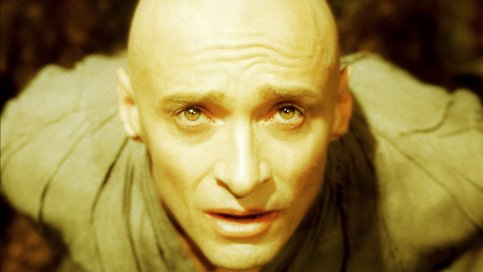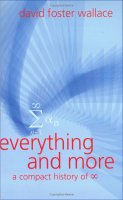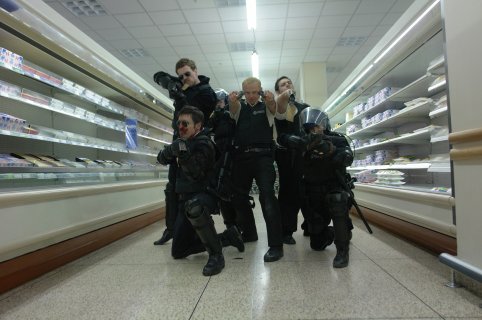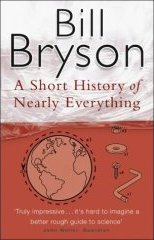The Fountain
Writer/Director: Darren Aronofsky.Starring: Hugh Jackman, Rachel Weisz. (2006) 

What if you could live forever?
Writer and Director Darren Aronofsky has a fierce and original talent, as amply demonstrated by his previous successes, Pi and Requiem for a Dream. Had I realised that The Fountain was another one of his, then perhaps I would have been marginally more prepared for it. In actuality, caught dozing my way through an aeroplane flight one sunny afternoon, I was somewhat blindsided by this millennia-spanning story of love, death and rebirth.
The thing is, it doesn't feel like Aronofsky's previous titles. It does feel a lot like other audacious, wildly sentimental tales, such as Crowe's Vanilla Sky, or Soderbergh's Solaris. Doubtless it will polarise viewers. Those of a more cynical bent will snigger at the pretentious triple-stranded narrative, encompassing characters separated by a thousand years, caught in the endless struggle for life amidst death. Good friends of mine, no doubt, will leave theatres in droves, gagging at the naïve rediscovery of the original Garden of Eden's tree of life in the jungles of Guatemala, steeped in Aztec legends of sacrifice and afterlife. Many will cringe at the grand and operatic scope of the emotionally crushing, drug-inspired finale, as Hugh Jackson, now a 25th century space-faring guru, full-lotuses headlong into a nova for the ultimate lesson in personal mortality.
But for every person who just can't stand a movie like this, there will be others who are bold and foolish enough to fall head over heels for its brand of unrepentantly teary-eyed intensity. For those bright-eyed space cadets, who have immense reservoirs of willing suspension for a story that is at once both enormous and intensely personal, who strive to enlarge their conciousness, or to be unafraid of the darkness in our hearts, and most especially for those who are or who ever have been in love, I can unreservedly say that it's the most amazing film of the year. And if you love it too, then then maybe one day we will find, that "together, we can live forever."
Well, maybe. But at the very least, it would make for a smashing film.
Rating: 9/10
Update 29/04/2007: Rohan and I finally understood the movie last night. I say finally - Rohan has only ever seen the first and last 15 minutes (oh, how apt! The start, and the end!) It's fair to say it blew our minds.
spoilers - big time.
foun-tain noun.
- A spring or source of water; the source or head of a stream.
- The source or origin of anything. The beginning. Genesis.
She finally taught him that they get reborn. That's why she wasn't afraid of dying any more. That's why the two of them meet over and over through history. That's why he is so tearfully happy to realise he is about to die. Because death is their road to immortality. To be reborn. To live forever.
This is how the tree of life grants immortality - by allowing them to realise this. Nothing has changed, other than their own knowledge.
The conclusion of his journey, to reach the nebula with the tree, is just in time for the end of the universe, which then immediately leaps back into being again, a new Creation, in the fires of which, the First Father is sacrificed on the tree of life, which blossoms anew. The circle is completed. The ring, which was lost, is now found.
She tries to tell him, to help him fulfil his destiny, but he has to figure it out for himself, at the proper time. He has to die in the heart of the nebula, that his ashes might seed the tree of life into blossoming anew in the fires of a new creation.
"What do you think about that?" She asks him.
"About what?"
"About death as a creative act."
Izzy and Tom will be reborn in this new universe, too, many times down the centuries of history. They will live an infinite number of lives together. Forever. So long as he finds his way to the end of all things, to renew the cycle.
"Finish it." She told him.
"I'm trying. I don't know how." He replies.
"You do. You will."
He is Adam, who sustained his unnaturally extended life to the year 2500 by subsisting on of the tree of life. She is his Eve, who partook of the tree of knowledge at the beginning. The trees are literally the self same plant.
This is why the same scenes happen over and over. Until, in one of the interminable infinity of cascading universes, something different happens. Tommy changes his mind. It's a bona fide miracle. He exercises his free will, does something differently this time around - He bails out of work, to go walk with Izzy in the first snow. He has learned that he can't save her. That he cannot, must not try to save her. For only in death do they find rebirth, and the immortality she has promised him.
The rational, male left-brained mind can only comprehend so much. It is limited to knowledge within the domain of individual lives' observable horizons. Each of these lives is punctuated by death, which is to lose all knowledge, all memories. Delineated by such singularities, the rational mind can never encompass the whole picture. To understand more, one needs to go beyond what can be known. One must believe in the things beyond the singularity, things that can never be known. You must have faith.
I am religious, and there is no God.
Update 30/04/2007: I suppose that the climactic event at the nebula doesn't have to represent the end / creation of whole universes. It could merely (!) represent the star at the core of the nebula collapsing beyond the Chandrasekhar limit, and undergoing spontaneous nova as a result. The corresponding storyline interpretation being that, rather than spawning new iterations of whole universes, Adam is instead seeding life in the formation of new solar systems, and so spreading life across the galaxy. My Conquistador, she calls him.
Update 2018: The director has stated unambiguously that the above is all wrong. The movie is a literal depiction of what actually happens. Scientist strives to save wife from death, she writes a historic tale featuring star-crossed conquistador and Queen, exhorts him to finish it. She dies. He finishes the story as a far-future tale about reaching the dying star, only to die in its fires, demonstrating that he finally accepted his lesson about accepting death.



